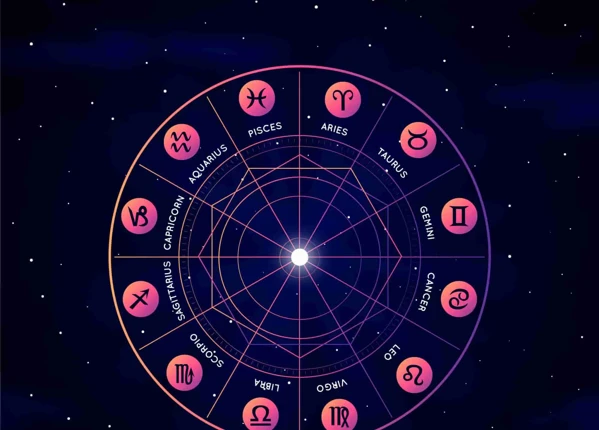The Enigmatic Components of a Natal Chart: Unveiling the Secrets of Astrology
Are you intrigued by the mystical realm of astrology? Do you find yourself pondering the complex web that connects the stars and planets to our individual identities? If so, then delving into the intricate elements of a natal chart is an illuminating journey that awaits you. A natal chart, also known as a birth chart, is a personalized snapshot of the celestial positions at the time of an individual’s birth. It provides profound insights into our personalities, strengths, weaknesses, and even our destiny. This captivating article will guide you step-by-step through the enigmatic elements of a natal chart, unraveling the mysteries of the ascendant, sun sign, moon sign, planets, houses, aspects, elements, modalities, polarities, retrograde planets, Mercury retrograde, and the ascendant ruler. Prepare to be astounded as we decode the celestial map that shapes our unique human experiences.
The Ascendant

The celestial veil begins to lift with the enigmatic Ascendant, the gateway to our unique and individual essence. In a natal chart, the Ascendant represents the sign that was on the eastern horizon at the moment of our birth. Defined as the mask we present to the world, the Ascendant is a crucial element that shapes our first impressions and influences our outer demeanor. It serves as a lens through which the world sees us and plays a significant role in our physical appearance and overall personality. Its importance cannot be overstated, as it sets the stage for the entire natal chart, providing valuable clues about our approach to life and the energy we radiate. Interpreting the Ascendant allows astrologers to tap into the rich tapestry of our individuality, unlocking a deeper understanding of our innermost desires and motivations. Unveiling the secrets of the Ascendant leads to a profound exploration of our true self, guiding us towards self-awareness and personal growth. To delve further into the mysteries of astrological significance, let’s also explore the planetary aspects that play a pivotal role in shaping our celestial story.
Definition
In astrology, the Ascendant, also known as the Rising sign, refers to the zodiac sign that appears on the eastern horizon at the exact moment of an individual’s birth. It marks the beginning of the first house in a natal chart and sets the stage for the rest of the astrological analysis. The sign that aligns with the Ascendant represents the individual’s external persona, the way they present themselves to the world, and their initial approach to life situations. It is often described as the mask or the first impression we give to others. The Ascendant sign plays a crucial role in molding our physical appearance and demeanor, serving as a window through which others perceive us. It influences how we navigate the world, interact with others, and express ourselves. To determine the Ascendant sign, an accurate birth time is vital, as even a slight variation can lead to a different zodiac sign ascending on the horizon. Understanding the definition of the Ascendant is essential for comprehending the intricate layers of an individual’s natal chart and gaining deeper insights into their personality and life experiences. To explore further aspects of astrological significance, it can be enlightening to delve into the significance of the North Node and the profound impact it has on our karmic journey, or to uncover the meaning of the Midheaven and its influence on our career and public image.
Importance
Importance lies at the core of understanding the Ascendant in a natal chart. This vital element is key to uncovering the first impression we make on others and how we navigate the world around us. Here are several reasons why the Ascendant holds such significance:
- Outer Impressions: The Ascendant is the mask we wear when we interact with the world, shaping how others perceive us. It influences our physical appearance, body language, and overall demeanor. By understanding the Ascendant, we gain insight into the image we project and how others may perceive us.
- Personal Identity: The Ascendant represents our core identity and sense of self. It reveals our basic instincts, motivations, and aspirations. It is the starting point for understanding our unique personality traits and behaviors.
- Life Path: The Ascendant sets the stage for the rest of the natal chart, playing a crucial role in determining our life path and purpose. It reveals the qualities and strengths we possess, as well as the challenges we may face along our journey.
- Compatibility: Understanding the Ascendant can provide insights into compatibility with others. By comparing Ascendants in synastry, or the comparison of two natal charts, astrologers can gain insights into the dynamics of relationships, friendships, and partnerships.
- Spiritual Growth: The Ascendant serves as a foundation for self-discovery and personal growth. It guides us towards understanding our life lessons, karmic patterns, and areas of potential transformation. Exploring the Ascendant can lead to a deeper connection with our true selves and a greater alignment with our soul’s purpose.
The importance of the Ascendant cannot be overstated, as it serves as a doorway into the intricate tapestry of our individuality. It offers profound insights into our outer persona, personal identity, life path, and spiritual evolution. By unraveling its mysteries, we embark on a journey of self-discovery and self-awareness, enabling us to embrace our authentic selves and navigate our lives with greater clarity and purpose.
Interpretation
Interpretation: The interpretation of the Ascendant in a natal chart unlocks a wealth of information about our identity, demeanor, and approach to life. As the mask we present to the world, the Ascendant signifies the qualities and characteristics we project onto others. Its placement in a specific zodiac sign provides insight into our outward behavior and appearance. For example, an individual with an Ascendant in fiery Aries may come across as confident, assertive, and eager to take the lead, while someone with a watery Pisces Ascendant may exude a dreamy, compassionate, and empathic presence. The Ascendant also interacts with other elements of the natal chart, such as the Sun, Moon, and planets, creating a unique blend of energies that shape our overall personality. Astrologers pay close attention to the ruling planet of the Ascendant, as this planet further refines the expression of our Ascendant traits. Additionally, the house placement of the Ascendant sheds light on the specific areas of life where our Ascendant qualities manifest most prominently. Interpretation of the Ascendant allows astrologers and individuals to gain a deeper understanding of their public persona, first impressions, and the way they navigate through the world. By embracing and aligning with our Ascendant energy, we can harness our strengths and embrace our true selves. Putting in the effort to understand the interpretive nuances of the Ascendant allows us to become more self-aware, enabling personal growth and the fulfillment of our highest potential.
The Sun Sign

At the heart of our natal chart lies the radiant Sun Sign, embodying our core essence and illuminating our truest self. The Sun Sign represents the zodiac sign in which the Sun was positioned at the time of our birth. As the central focal point of our personality, it influences our behavior, aspirations, and the qualities we exude to the world. The Sun Sign reflects our fundamental character traits and speaks to our inner drive and vitality. It holds immense importance in understanding our motivations, creativity, and life purpose. Each Sun Sign carries its unique qualities, from the bold and confident nature of Aries to the nurturing and empathetic spirit of Cancer, and the intellectual prowess of Gemini. Whether fiery, earthy, airy, or watery, our Sun Sign is a guiding force that shapes our individuality and acts as a beacon of self-expression. Exploring the intricacies of our Sun Sign is a pathway towards self-discovery and a deeper understanding of our inner light.
Definition
The Ascendant is a pivotal component of a natal chart, representing the zodiac sign that was on the eastern horizon at the time of an individual’s birth. It is sometimes referred to as the Rising Sign. The Ascendant acts as a filter through which the world perceives us and plays a crucial role in shaping our physical appearance, personality, and overall behavior. It is the lens through which we interact with the world and the first impression we make on others. The sign of the Ascendant reflects our outward demeanor, public image, and the way we present ourselves to the world. It governs our approach to life and influences our attitudes, behaviors, and general disposition. This key element offers valuable insights into our external self and the mask we wear, shedding light on the qualities we project onto others. Understanding the definition of the Ascendant provides a solid foundation for exploring its intricate connection with our identity and guiding us towards a deeper comprehension of our multidimensional selves.
Importance
The Ascendant holds immense significance in a natal chart as it sets the stage for the entire astrological map of an individual. It is often referred to as the “mask” we present to the world, influencing our outer demeanor and aiding in the formation of first impressions. The Ascendant plays a crucial role in determining our physical appearance, personality traits, and overall approach to life. It represents the energy we radiate and the lens through which others perceive us. Understanding the importance of the Ascendant allows us to gain a deeper understanding of our own self-image and how we interact with the world around us. By exploring the characteristics and qualities associated with the Ascendant sign, we can uncover valuable insights into our strengths, weaknesses, and inherent traits. Additionally, the Ascendant acts as a key to unlocking further interpretations and meanings within the natal chart, providing essential context for the placement of planets and other astrological factors. It is through the Ascendant that we begin to unravel the intricate web of our celestial story, guiding us towards greater self-awareness, personal growth, and alignment with our true selves.
Interpretation
Interpretation:
When it comes to interpreting the Ascendant in a natal chart, astrologers consider a variety of factors to unravel the deeper meaning behind this essential element. Firstly, the sign occupying the Ascendant reveals the general characteristics and demeanor that we project to the world. For example, an individual with Leo rising might exhibit confidence, a flair for drama, and a natural magnetism that draws attention. Secondly, the planets that reside in close proximity to the Ascendant significantly impact its interpretation. These planets add their unique energy and influence to the individual’s outward expression. For instance, if Mars is in conjunction with the Ascendant, there might be a fiercely assertive and energetic quality to the individual’s personality. Additionally, astrologers analyze the ruling planet of the Ascendant, which corresponds to the sign that governs the first house. This ruling planet further shapes a person’s temperament, disposition, and overall approach to life. Each zodiac sign ruling the Ascendant brings its distinct attributes and flavor to the interpretation. For example, a Taurus Ascendant ruled by Venus might signify someone with a sensual, grounded, and determined nature. Ultimately, the interpretation of the Ascendant is a nuanced exploration of how we navigate the world, showcasing the characteristics we embody on the surface level. By understanding the Ascendant’s interpretation, we gain valuable insight into our outward behaviors, social interactions, and the image we present to others. It serves as a key to unraveling the complexities of our personality and the lens through which we interact with the world around us.
The Moon Sign

Immerse yourself in the ethereal realm of emotions and intuition as we unravel the enigmatic Moon Sign in a natal chart. The Moon Sign represents the zodiac sign that the Moon was in at the exact moment of our birth. Defined as the reflection of our innermost selves, the Moon Sign holds the key to our emotional nature, vulnerabilities, and intuitive inclinations. It exerts a profound influence on our subconscious mind, shaping our emotional responses and psychological needs. Understanding our Moon Sign is vital to gaining insights into our deepest desires, fears, and patterns of behavior. Its importance lies in the fact that it reveals how we seek emotional security, express our emotions, and nourish ourselves on an emotional level. Unlocking the secrets of the Moon Sign allows us to navigate the turbulent waters of our inner world, fostering self-awareness and emotional well-being. Embark on this journey of self-discovery, and you will uncover the hidden mysteries of your Moon Sign, transcending the boundaries of the physical realm and connecting with the depths of your soul.
Definition
The definition of the Ascendant in astrology refers to the zodiac sign that was rising on the eastern horizon at the exact moment of an individual’s birth. It is also known as the Rising Sign. This sign sets the framework for the entire natal chart, as it represents the individual’s outward appearance, demeanor, and the mask they present to the world. The Ascendant is determined by the time and location of birth, and it moves through all twelve signs of the zodiac over a 24-hour period. It is one of the crucial components used to calculate the houses, as it determines the starting point of the astrological wheel. The Ascendant is a significant factor in astrological interpretations, as it adds depth and nuance to the individual’s character and how they interact with the world around them. It serves as the filter through which the other elements of the natal chart are expressed, making it a key piece in understanding a person’s overall astrological makeup.
Importance
The importance of the Ascendant in a natal chart cannot be overstated. This key component serves as a foundational building block, shaping our first impressions, influencing our outer demeanor, and setting the stage for the entire chart interpretation. The Ascendant represents the mask we present to the world, the persona that others perceive when they meet us. It plays a significant role in our physical appearance, body language, and overall personality. This celestial point holds insights into how we approach life, our energy, and our general outlook. The Ascendant’s influence extends beyond superficial appearances, as it also reveals valuable information about our assertiveness, drive, and behavior when faced with new situations. It acts as a filter through which all other planets and aspects in the natal chart are expressed, coloring our interactions and influencing our experiences. Understanding the significance of the Ascendant allows us to gain a deeper understanding of our true selves, unlocking a pathway towards self-awareness and personal growth. Whether it aligns with our Sun sign or presents a contrasting energy, the Ascendant provides invaluable information that can guide us in navigating life’s journey and discovering our authentic selves. It is through the exploration of the Ascendant that we gain a clearer lens to view our own complexities and unravel the layers of our astrological identity.
Interpretation
Interpretation lies at the heart of understanding the intricate dance between celestial bodies within a natal chart. Once the various elements of the chart have been identified, it is through interpretation that the true meaning and significance are revealed. By analyzing the positions, aspects, and relationships of the planets and other chart components, astrologers can decipher the unique story that unfolds within an individual’s natal chart. Interpretation involves examining the symbolism, archetypes, and energies associated with each element of the chart, allowing for a deeper understanding of its influence on the individual’s personality, behavior, and life path. It is a nuanced process that requires a deep knowledge of astrology and an intuitive grasp of the interconnectedness of cosmic energies. Through interpretation, astrologers can uncover a wealth of insights such as one’s strengths, weaknesses, motivations, and potentials. It allows individuals to gain a greater sense of self-awareness, helping them align with their authentic selves and navigate their life journey with clarity and purpose. The art of interpretation is a profound and illuminating endeavor, unlocking the secrets and mysteries contained within the celestial blueprint of the natal chart.
The Planets

At the core of a natal chart lie the celestial powerhouses known as the planets. These luminous celestial bodies, each carrying their own distinct energy and symbolism, hold immense sway over our lives and shape our unique personalities. With their multifaceted significance, the planets provide profound insights into our strengths, challenges, and overall character. Each planet governs different aspects of life, representing various facets such as our identity (Sun), emotions (Moon), communication (Mercury), love and relationships (Venus), aggression and drive (Mars), expansion and wisdom (Jupiter), discipline and structure (Saturn), innovation and unpredictability (Uranus), transformation and depth (Pluto), and so much more. Understanding the role and placement of these powerful celestial beings unravels the intricate layers of our being, guiding us towards self-awareness and offering invaluable guidance on our journey of personal growth and fulfillment. As we explore the planets, we begin to decode the cosmic symphony that orchestrates the dance of our lives, allowing us to align with our true purpose and potential.
Definition
The Ascendant, also known as the Rising Sign, is a key component of a natal chart in astrology. It refers to the zodiac sign that was rising on the eastern horizon at the precise moment of an individual’s birth. This point in the sky serves as the starting point for the entire chart and sets the stage for the positioning of all other celestial bodies. The Ascendant is determined by the exact time and location of birth and changes approximately every two hours, making it highly personalized to each individual. It signifies the way we present ourselves to the world and the first impression we make on others. It represents our physical appearance, as well as our general attitude and demeanor. Just as the dawn breaks and the sun rises, the Ascendant marks the beginning of our journey through life, symbolizing the outer shell through which we interact with the world. It acts as a filter, influencing our behavior and shaping our interactions with others. Understanding the Ascendant provides valuable insights into the public image we portray and the initial energy we emit into our surroundings. It is a significant factor in understanding one’s overall personality and offers a glimpse into how we approach new experiences and relationships. It serves as the doorway to self-discovery and is the starting point for unraveling the intricacies of the natal chart.
Importance
The Ascendant holds immense significance in a natal chart, influencing various aspects of our lives. Here are some key reasons why the Ascendant is crucial:
1. First Impressions: The Ascendant determines the mask we wear when meeting others, shaping their initial perception of us. It is the outer layer that people encounter before getting to know our inner selves.
2. Physical Appearance: This element of the chart has a strong influence on our physical features and body type. The Ascendant can provide insights into our natural disposition, energy levels, and overall vitality.
3. Approach to Life: The Ascendant plays a significant role in shaping our overall attitude and behavior towards life. It can reveal how we navigate challenges, interact with others, and seize opportunities.
4. Personal Style: The Ascendant guides our fashion sense, grooming habits, and overall aesthetic preferences. It influences how we present ourselves to the world and the image we strive to portray.
5. Compatibility in Relationships: When comparing natal charts for compatibility, understanding the Ascendant is crucial. It offers insights into how two individuals may relate to and interact with each other.
6. Self-Understanding: Exploring the Ascendant allows us to gain a deeper understanding of our own strengths, weaknesses, and unique qualities. It provides a clearer picture of who we truly are.
7. Life Path and Purpose: The Ascendant provides valuable clues about our life’s journey, soul’s purpose, and the lessons we are here to learn. It helps us align our actions with our higher self.
Understanding the importance of the Ascendant allows us to navigate life with greater self-awareness. It provides a foundation for personal growth and allows us to harness our innate potential.
Interpretation
Within the realm of astrology, interpretation is the fundamental key to unlocking the profound insights and messages held within a natal chart. It involves deciphering the intricate symbolism and meaning behind the various elements present in the chart, including the Ascendant, Sun sign, Moon sign, planets, houses, aspects, elements, modalities, polarities, retrograde planets, Mercury retrograde, and the Ascendant ruler.
When interpreting a natal chart, astrologers carefully analyze the placement and relationships between these elements to gain a comprehensive understanding of an individual’s personality, potential, and life experiences. Each component within the chart carries its own unique significance and contributes to the overall tapestry of an individual’s life story.
The interpretation process involves examining the specific qualities, characteristics, and energies associated with each element and how they interact with one another. For example, the Ascendant represents the outer persona and physical appearance, while the Sun sign reflects the core essence and ego. The Moon sign reveals emotional needs and instincts, and the planets symbolize different aspects of our personality and life experiences.
Interpreting the houses sheds light on specific areas of life, such as career, relationships, and spirituality, while aspects reveal the dynamic interactions between planets, indicating potentials for strengths, challenges, and opportunities. Additionally, elements, modalities, and polarities offer valuable insights into the overall balance, temperament, and expression of an individual’s chart.
The interpretation process is a highly intuitive and deeply personal endeavor. Every chart is unique, and it is the astrologer’s role to discern the individual story woven within the celestial fabric. By skillfully deciphering the intricate language of astrology, the interpretation of a natal chart empowers us with a profound understanding of ourselves and holds the potential for personal growth, self-awareness, and alignment with our true purpose.
Interpreting the natal chart is a transformative journey that allows individuals to navigate the complexities of their lives and gain insights into their strengths, challenges, and potentials. It is a tool for self-discovery, offering guidance and clarity on the path to personal fulfillment and spiritual growth. Whether consulting with a professional astrologer or embarking on a self-study of astrology, the art of interpretation opens doors to a deeper understanding of ourselves and the interconnectedness of the universe.
The Houses

At the heart of the astrological tapestry lies the intricate and fascinating concept of the Houses. These twelve divisions of the natal chart represent different areas of life, each with its unique themes and influences. Defined as slices of the sky at the time of our birth, the Houses serve as cosmic stages where the celestial actors, such as the planets, play out their roles. Each House corresponds to a specific aspect of our existence, including our relationships, career, creativity, and personal growth. Understanding the Houses is of utmost importance, as they provide a detailed map of our life’s journey, shedding light on the opportunities, challenges, and experiences that await us. By interpreting the Houses in our natal chart, astrologers can gain profound insights into our relationships, our home and family life, our aspirations, and much more. These cosmic dwellings hold the keys to unlocking the secrets of our individual path and guiding us towards self-realization. To deepen our exploration of astrology’s intricacies, let’s also uncover the significance of the North Node and embark on a journey of self-discovery and spiritual growth.
Definition
The Ascendant is the astrological term used to describe the zodiac sign that was on the eastern horizon at the moment of an individual’s birth. It represents the beginning of the first house in the natal chart, marking the point where the sun rises. This pivotal point sets the stage for the entire chart, shaping an individual’s outward appearance and the impression they make on others. The Ascendant is often referred to as the “mask” or “persona” we present to the world, as it influences how we interact with others and the energy we project. It reflects our first reactions, our immediate instincts, and the way we approach life. The Ascendant is determined by the exact time and location of one’s birth, making it a highly personalized and unique aspect of a natal chart. It provides essential information about an individual’s demeanor, physical appearance, and general outlook on life. Understanding the significance of the Ascendant unlocks valuable insights into our true self and serves as a powerful tool for self-discovery and personal growth.
Importance
- Self-Projection: The Ascendant plays a fundamental role in shaping our outward appearance and how we present ourselves to the world. It represents the mask we wear and the first impression we make on others.
- Physical Traits: This element of the natal chart offers insights into our physical characteristics and features. It influences our body type, overall appearance, and even our personal style.
- Pioneering Energy: The Ascendant sets the tone for our approach to life. It reveals our inherent strengths and the energy we bring to new experiences. Whether we are vibrant and enthusiastic or reserved and introspective, the Ascendant provides invaluable guidance.
- Personal Identity: As the starting point of the natal chart, the Ascendant contributes significantly to our sense of self. It influences our attitudes, behaviors, and overall personality traits, offering profound insights into our individual identity.
- Life Path: Understanding the Ascendant is crucial in deciphering our life path and purpose. It provides clues about the lessons we are here to learn, the challenges we may face, and the opportunities that will present themselves along our journey.
These facets of the Ascendant highlight its immense importance in the realm of astrology. By analyzing this element, astrologers gain valuable knowledge about how we navigate the world, express ourselves, and shape our destiny. The Ascendant serves as a blueprint, guiding us towards self-discovery and self-realization.
Interpretation
Interpreting the elements of a natal chart is a profound and intricate process that requires careful analysis and understanding. Each element plays a unique role in shaping our personality and life experiences. Let’s explore the interpretation of these elements:
1. The Ascendant: The Ascendant signifies our external persona and how we present ourselves to the world. It reveals our physical appearance, mannerisms, and overall demeanor. By analyzing the sign and any planets or aspects present in the Ascendant, astrologers gain insights into our first impressions and how we navigate our outer world.
2. The Sun Sign: The Sun Sign represents our core essence and the fundamental qualities that define us. It illuminates our individuality, aspirations, and the path we are destined to follow. Interpreting the Sun Sign helps us understand our inherent strengths, weaknesses, and the lessons we are here to learn.
3. The Moon Sign: The Moon Sign reflects our emotional nature and how we nurture ourselves and others. It represents our deepest needs, instincts, and our subconscious patterns. Interpreting the Moon Sign unravels our emotional landscape, providing insights into our relationships, self-care practices, and intuitive abilities.
4. The Planets: Each planet in the natal chart holds its own unique energy and symbolism. Interpreting the planets involves analyzing their positions, aspects, and relationships to understand their impact on different areas of our lives. For example, the influence of Venus can reveal our values, love nature, and artistic inclinations, while Mars signifies our drive, ambition, and assertiveness.
5. The Houses: The Houses represent different areas of life, such as career, relationships, and spirituality. Each house has its own significance and is associated with specific themes and experiences. Interpreting the houses helps us understand where certain energies and activities manifest in our lives, providing valuable guidance in different aspects of our journey.
6. The Aspects: Aspects are the geometric relationships between planets in the natal chart. They reveal the dynamic interplay of planetary energies and can indicate strengths, challenges, and potential opportunities. Interpreting the aspects allows astrologers to understand the complexities and nuances of our personality, relationships, and life experiences.
7. The Elements, Modalities, and Polarities: These three components further enhance the interpretation of a natal chart. The elements (fire, earth, air, and water) provide insights into our temperament and qualities, while the modalities (cardinal, fixed, and mutable) reveal our approach to action and change. The polarities (yin and yang) represent the masculine and feminine energies within us. Analyzing these elements deepens our understanding of ourselves and our interactions with the world around us.
8. The Retrograde Planets: Retrograde planets signify a unique energy that requires introspection and reevaluation. Interpreting retrograde planets helps us uncover areas of our lives where we may need to reflect, review, and make adjustments. It offers opportunities for growth and inner transformation.
9. The Ascendant Ruler: The ruling planet of the Ascendant influences our entire chart, acting as a guiding force in our lives. Interpreting the Ascendant Ruler provides valuable insights into our purpose, strengths, and challenges, offering a deeper understanding of our life’s journey.
Interpreting a natal chart is a multidimensional process that requires expertise and intuition. It provides a profound roadmap to self-discovery, guiding us towards personal growth, and a deeper connection with the cosmic forces that shape our existence.
The Aspects
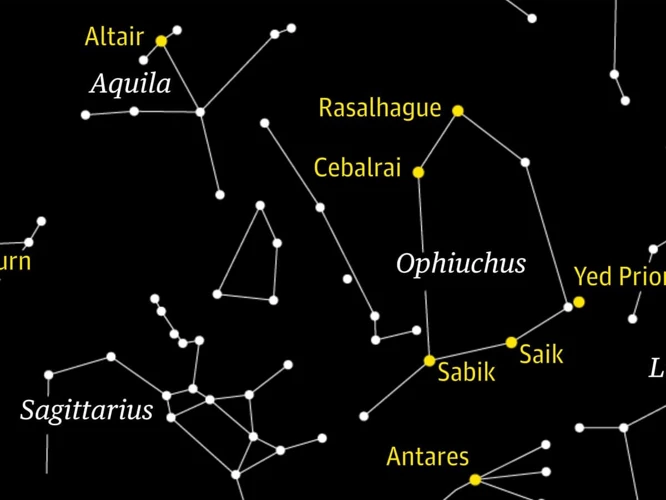
Embarking on our cosmic journey, we come across the captivating realm of astrological aspects, where celestial dance patterns shape the intricacies of our lives. Aspects refer to the geometric relationships between planets and other points on a natal chart. Each aspect carries its own unique energy, creating a dynamic interplay between planetary forces. There are several types of aspects, including conjunctions, sextiles, squares, trines, and oppositions, each holding its own significance and impact. Conjunctions merge the energies of planets, intensifying their influence, while sextiles create opportunities for harmony and cooperation. Squares present challenges that drive growth and transformation, while trines bring ease and flow to our endeavors. Oppositions reveal opposing forces that demand balance and integration. When interpreting aspects, astrologers unveil the intricate interweaving of planetary energies, offering profound insights into our personalities, relationships, and life experiences. By understanding the cosmic conversation within our natal chart, we gain a deeper understanding of ourselves and the complexities of our human existence.
Definition
The of the Ascendant in a natal chart refers to the zodiac sign that was rising on the eastern horizon at the moment of an individual’s birth. It represents the point of self-identity, the mask we wear when we interact with the world around us. The Ascendant is calculated based on the exact time and location of birth and is also known as the Rising Sign. It signifies the first impression we make on others and how we present ourselves to the outside world. This astrological component determines our physical appearance, body language, and overall demeanor. It is important to note that the Ascendant changes signs approximately every two hours, making it highly specific to each individual. By understanding the definition of the Ascendant, we gain deeper insights into the core essence and initial impression one creates in their unique journey through life.
Importance
The importance of the Ascendant in a natal chart cannot be underestimated. This element serves as the lens through which the world perceives us and sets the tone for our interactions with others. It shapes our physical appearance, influencing our overall demeanor, and provides valuable clues about our approach to life. When astrologers analyze the Ascendant, they gain profound insights into our external behavior, as well as our deeper motivations and desires. By understanding the characteristics associated with the sign on the Ascendant, we can better comprehend the energy we radiate and the first impressions we leave on others. The Ascendant also plays a crucial role in determining our responses to different situations and influences our overall personality. By exploring this essential element of the natal chart, we can achieve a more holistic understanding of ourselves and gain valuable insights for personal growth and self-awareness.
Interpretation
When it comes to interpreting the Ascendant in a natal chart, astrologers delve into the depths of its influence on our personalities and life experiences. The Ascendant represents our outward behavior, appearance, and the mask we wear, but it also reveals deeper layers of our identity. By understanding the sign, degree, and aspects of the Ascendant, astrologers gain valuable insights into how we present ourselves to the world, our first impressions, and our overall approach to life.
The interpretation of the Ascendant involves considering the ruling planet of the Ascendant. This planet provides clues about our dominant traits and characteristics. For example, if someone has a Leo Ascendant ruled by the Sun, they may exude confidence, leadership qualities, and a desire for recognition. On the other hand, a Cancer Ascendant ruled by the Moon may manifest as a nurturing and sensitive persona.
Additionally, the aspects made to the Ascendant further shape its interpretation. Harmonious aspects, such as trines or sextiles, may enhance the positive qualities of the Ascendant sign while challenging aspects like squares or oppositions can bring out the more challenging aspects of our personality.
Another aspect of Ascendant interpretation is exploring the house placement of the ruling planet. The house position of the Ascendant ruler sheds light on the life areas where our Ascendant energy is most strongly expressed. Understanding this placement allows astrologers to gain a more comprehensive understanding of how our Ascendant manifests in different aspects of our lives.
It’s important to remember that the interpretation of the Ascendant is highly individualized and intertwined with the unique elements of each person’s natal chart. By considering the sign, ruling planet, aspects, and house placement, astrologers can unlock a deeper understanding of the Ascendant’s role in shaping our outward personality and life experiences.
The Elements
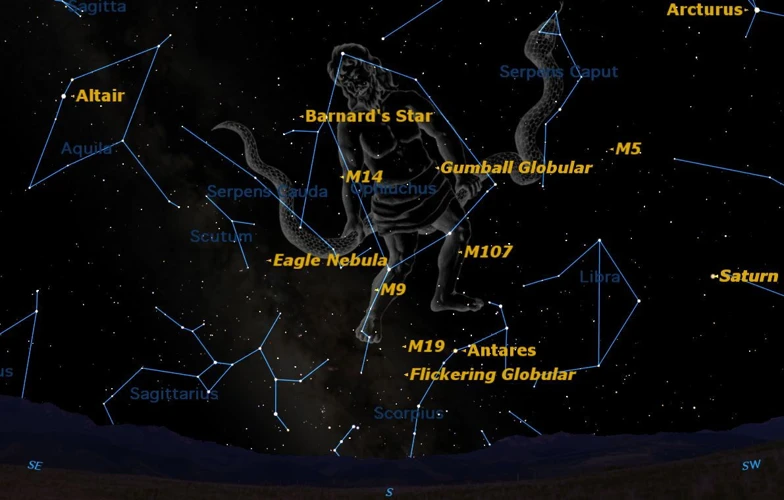
The Elements, classified as fire, earth, air, and water, provide a fundamental framework for understanding the core characteristics and energies of each zodiac sign. These Elements bring distinct qualities and temperaments that shape our personalities and influence our interactions with the world. Fire signs (Aries, Leo, and Sagittarius) are passionate, spontaneous, and dynamic, igniting inspiration and fueling creativity. Earth signs (Taurus, Virgo, and Capricorn) ground us with their practicality, determination, and reliability. Air signs (Gemini, Libra, and Aquarius) stimulate intellectual curiosity, communication, and adaptability. Water signs (Cancer, Scorpio, and Pisces) immerse us in emotions, intuition, and empathy. Understanding the influence of the Elements allows astrologers and enthusiasts alike to uncover the unique combination of qualities present in a natal chart, shedding light on our strengths, weaknesses, and areas of growth. By harnessing the power of the Elements, we can navigate life’s various challenges and align our energy with the cosmic forces that shape our being.
Definition
The Ascendant is essentially the zodiac sign that was rising on the eastern horizon at the exact moment of an individual’s birth. It marks the beginning point of the first house in a natal chart. This astrological component is also known as the “Rising Sign” and holds great significance in understanding a person’s outer persona, appearance, and first impressions they make on others. The Ascendant’s essence acts as a filter or mask through which the world views an individual, influencing their behavior and how they present themselves to the world. It represents their outward personality, character traits, and physical attributes. For example, an individual with a Capricorn Ascendant may be perceived as ambitious, responsible, and serious in their demeanor. It is important to note that while the Sun Sign is the core of an individual’s personality, the Ascendant is the outer layer that others often see first. It adds flavor and nuance to their overall character and can even modify the expression of their Sun Sign in some cases.
Importance
Understanding the importance of the Ascendant in a natal chart is essential in unraveling the intricacies of one’s personality and life path. This pivotal element holds significant influence over various aspects of our lives:
1. Outer Impressions: The Ascendant represents the first impression we make on others and how we present ourselves to the world. It shapes our external demeanor, body language, and physical appearance. It is the mask we wear when interacting with the world, revealing our initial reactions and responses.
2. First House Ruler: The Ascendant is the ruler of the First House, which governs our individuality, self-image, and personal identity. The sign and aspects of the Ascendant influence how we express ourselves, our desires, and our overall approach to life.
3. Life Purpose: The Ascendant can provide valuable insights into our life purpose and path. Its influence on the chart sets the stage for our overall life direction, indicating the areas where we may excel or encounter challenges.
4. Relationships: The Ascendant plays a vital role in shaping our interactions and relationships. It affects our compatibility with others and the initial attraction we may feel towards certain individuals. It can also shed light on the type of partner we are attracted to or the qualities we seek in a relationship.
5. Self-Awareness: Understanding our Ascendant helps us develop a deeper sense of self-awareness. By acknowledging and embracing the energies and qualities associated with our Ascendant sign, we can align ourselves with our authentic selves, leading to personal growth and fulfillment.
By delving into the importance of the Ascendant, we gain valuable insights into our outer persona, life purpose, and relationships. This profound exploration enables us to navigate our lives with a deeper understanding of who we are and the unique energy we radiate into the world.
Interpretation
Interpretation:
When it comes to interpreting the Ascendant in a natal chart, astrologers delve into the specific characteristics and qualities associated with the corresponding zodiac sign. Each sign brings its unique energy and influences the individual’s outward expression. Here is a breakdown of the interpretation for each zodiac sign’s Ascendant:
- Aries Ascendant: Individuals with Aries Ascendant tend to be bold, assertive, and full of energy. They have a strong presence and radiate confidence.
- Taurus Ascendant: Taurus Ascendants are known for their grounded and practical nature. They exude stability, reliability, and sensual charm.
- Gemini Ascendant: With Gemini Ascendant, versatility and intellectual curiosity are key traits. They are excellent communicators and enjoy socializing.
- Cancer Ascendant: Cancer Ascendants are nurturing and intuitive individuals. They have a strong emotional depth and tend to be protective of their loved ones.
- Leo Ascendant: Leo Ascendants are charismatic and thrive on attention. They have a flair for dramatic self-expression and are often natural leaders.
- Virgo Ascendant: Virgo Ascendants are meticulous and analytical. They have a strong attention to detail and strive for perfection in all areas of life.
- Libra Ascendant: Libra Ascendants are known for their diplomatic approach to life. They seek harmony and balance in their relationships and have a keen sense of aesthetics.
- Scorpio Ascendant: Scorpio Ascendants emanate intensity and depth. They have a magnetic presence and are intrigued by the hidden aspects of life.
- Sagittarius Ascendant: Sagittarius Ascendants are adventurous and optimistic. They have an expansive nature, love to explore, and seek philosophical truths.
- Capricorn Ascendant: Capricorn Ascendants embody ambition and determination. They are focused on achieving their goals and have a strong sense of responsibility.
- Aquarius Ascendant: Aquarius Ascendants are independent thinkers and value their freedom. They have a progressive mindset and are drawn to social causes.
- Pisces Ascendant: Pisces Ascendants possess a compassionate and dreamy nature. They have a strong intuition and are drawn to creative pursuits.
Understanding the interpretation of the Ascendant not only helps us comprehend our own identity but also provides insights into how we interact with the world around us. It allows us to navigate our relationships, career choices, and personal growth with a deeper understanding of our core traits and projected persona. The Ascendant’s influence, combined with the placement of other planets and aspects in the natal chart, paints a holistic picture of our unique astrological makeup. As we continue our journey through the elements of the natal chart, we unveil more layers of our cosmic blueprint, providing us with a roadmap to self-discovery.
The Modalities
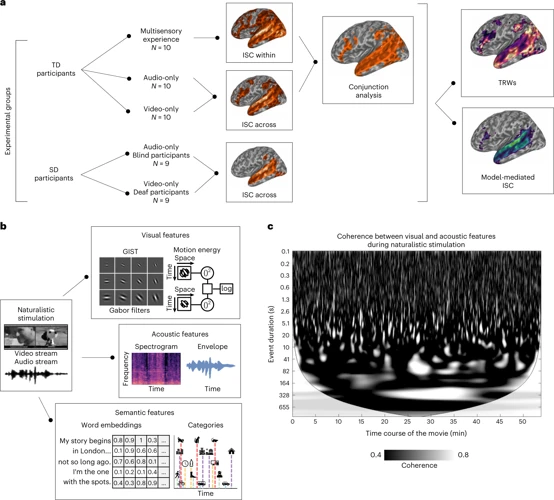
The dynamic interplay of the zodiac signs becomes evident through the fascinating concept of modalities. Defined as the energetic qualities that shape our actions and responses, the modalities represent three different modes of expression within the zodiac: cardinal, fixed, and mutable. Each modality brings its distinct flavor and influences how we initiate, stabilize, and adapt to change in our lives. The cardinal signs (Aries, Cancer, Libra, Capricorn) embody the energy of initiation, pushing us to take action and create new beginnings. The fixed signs (Taurus, Leo, Scorpio, Aquarius) provide stability and endurance, grounding us and helping us persevere. The mutable signs (Gemini, Virgo, Sagittarius, Pisces) bring flexibility and adaptability, inviting us to embrace change and go with the flow. Recognizing the modalities in our natal chart illuminates our personal tendencies and approaches to various aspects of life, empowering us to understand how we navigate challenges, relationships, and personal growth. This deep dive into the modalities forms an essential piece of the celestial puzzle, joining the other enigmatic components to shed light on our unique astrological makeup.
Definition
The Ascendant, also known as the Rising Sign, is one of the fundamental elements in a natal chart. It represents the zodiac sign that was on the eastern horizon at the exact moment of an individual’s birth. In astrology, the Ascendant is referred to as the “mask” we wear or the persona we project to the world. It symbolizes our outward appearance, behavior, and how we interact with the world around us. The Ascendant sets the stage for the entire chart and is considered the starting point of self-discovery in astrology. It establishes the lens through which others perceive us and influences our physical appearance, mannerisms, and first impressions. The sign of the Ascendant determines the general characteristics and qualities that we embody, shaping our approach to life and the energy we radiate. Additionally, it sets the stage for the placement and interpretation of the other astrological elements in the natal chart, such as the planets and houses. It is helpful to think of the Ascendant as the external facade that we present to the world, while the inner self and deeper complexities are revealed through further exploration of the chart.
Importance
- Revealing Our Outer Persona: The Ascendant holds immense importance as it represents the mask we present to the world. It influences our physical appearance, demeanor, and the way we interact with others. Understanding the Ascendant allows us to understand how we come across to the world and how we are perceived by others.
- Setting the Stage: The Ascendant sets the stage for the entire natal chart. It determines the starting point of the first house, which represents our sense of self, identity, and personal motivations. By understanding the Ascendant, we gain valuable insights into our core essence and the foundation upon which our life path is built.
- Influencing our Natal Chart: The Ascendant influences the positioning and interpretation of the other elements in our natal chart. It affects the placements of the planets, the signs in the houses, and the aspects formed between different celestial bodies. It adds depth and complexity to the overall astrological analysis, providing a framework through which we can better understand ourselves.
- Indicating Life Themes and Experiences: The Ascendant showcases the themes and experiences that are likely to manifest in our lives. It indicates the areas in which we may experience growth, challenges, and opportunities for personal development. By understanding the Ascendant, we can gain insights into the lessons we are meant to learn and the experiences we are destined to encounter.
- Affecting Relationships: The Ascendant plays a significant role in shaping our relationships. It influences our initial impressions on others and affects the way we interact in partnerships and friendships. Understanding the Ascendant can provide valuable insights into compatibility and help us navigate our connections with others.
As we explore the different elements of a natal chart, the importance of the Ascendant becomes increasingly evident. It acts as a guiding force, shaping our outward personality, influencing our life experiences, and providing invaluable insights into our individuality. By unraveling the secrets of the Ascendant, we embark on a transformative journey of self-discovery and self-understanding.
Interpretation
When it comes to interpreting the Ascendant in a natal chart, astrologers take into account several key factors. Firstly, the sign of the Ascendant reveals the outer facade we present to the world. Each zodiac sign carries its own set of characteristics, influencing our physical appearance, behavioral patterns, and overall approach to life. For example, an individual with an Ascendant in Aries may emanate a bold and assertive energy, while someone with a Pisces Ascendant might exude a gentle and empathetic aura.
Furthermore, aspects to the Ascendant provide additional layers of complexity. These aspects are created by the relationship between the Ascendant and other planets in the chart. Harmonious aspects, such as trines or sextiles, can enhance the positive attributes of the Ascendant sign, amplifying its influence on the individual’s personality. On the other hand, challenging aspects like squares or oppositions may create inner conflicts or present obstacles in expressing the qualities of the Ascendant sign.
Additionally, the ruling planet of the Ascendant plays a significant role in the interpretation. The ruling planet represents the energy and qualities that are manifested through the Ascendant sign. For instance, someone with a Libra Ascendant ruled by Venus may display Venusian traits such as charm, diplomacy, and a strong aesthetic sense. Identifying the ruling planet provides valuable insight into the deeper layers of the Ascendant’s expression.
It is important to note that the interpretation of the Ascendant should not be viewed in isolation but rather in conjunction with other components of the natal chart. The house placement of the Ascendant provides additional context, shedding light on specific areas of life where the Ascendant’s influence is most prominent. For example, an individual with a Cancer Ascendant in the seventh house may have a strong focus on partnerships and relationships.
The interpretation of the Ascendant in a natal chart involves considering the sign of the Ascendant, aspects to the Ascendant, the ruling planet, and the house placement. Through a comprehensive analysis of these factors, astrologers can unearth valuable insights into an individual’s outer persona, physical appearance, and overall approach to life. Understanding the Ascendant’s role allows for a deeper understanding of oneself and the potential for personal growth and self-awareness.
The Polarities
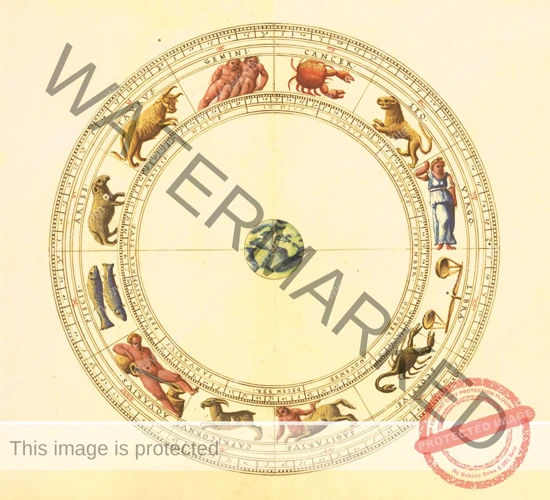
As we navigate the cosmic realm of astrology, we encounter the intriguing concept of polarities. In a natal chart, the polarities refer to the opposing sign pairs that create a dynamic balance within our personalities and experiences. These complementary forces represent the yin and yang, the light and shadow, within us. The polarities highlight the contrasting energies we embody, offering a deeper understanding of our motivations, desires, and struggles. By examining the interplay between these polar opposites, astrologers can uncover the intricate dance of energies that shape our lives. Each polarity brings its unique flavor to our being, facilitating growth and harmony through the integration of these seemingly contradictory forces. Exploring the polarities in our natal chart allows us to embrace the complexity of our existence and strive for a holistic and balanced approach to life.
Definition
In astrology, the Ascendant is defined as the zodiac sign that is on the eastern horizon at the precise moment of an individual’s birth. This is why it’s also commonly referred to as the rising sign. It represents the starting point of the astrological chart, setting the stage for the entire personality and life path. The Ascendant determines the specific degree of the zodiac sign that was ascending on the horizon, thus providing valuable insights into an individual’s outward demeanor, physical appearance, and first impressions. It acts as a filter through which the world perceives us and sets the tone for our interactions with others. The Ascendant is calculated based on the exact birth time and location. This precise positioning is what makes each person’s Ascendant unique and personalized. It is an essential component of the natal chart, as it represents the initial energy and quality that we bring into the world from the moment of our birth. Discovering the Ascendant unlocks a deeper understanding of our outer expression and the way we navigate our surroundings.
Importance
Importance:
Understanding the importance of the Ascendant in a natal chart is essential for unraveling the complexities of one’s personality and life path. The Ascendant sets the tone for how individuals interact with the world, shaping their overall outlook and demeanor. This influential element plays a significant role in their physical appearance, body language, and style of self-expression. The Ascendant signifies the first impression they make on others, influencing the way they are perceived and received by the world. It serves as a protective mask, shielding their inner world and vulnerabilities. The Ascendant acts as a guide, directing individuals towards their life purpose and path. By understanding their Ascendant sign, individuals gain deeper insights into their strengths, weaknesses, and how they can best navigate through life’s challenges. It helps them embrace their true self and align their actions with their authentic nature. Recognizing the importance of the Ascendant in a natal chart empowers individuals to embrace their unique qualities and make conscious choices that align with their higher purpose. It acts as a foundation for self-awareness and personal growth, providing a clearer understanding of one’s life journey.
Interpretation
Interpretation: The interpretation of the elements in a natal chart is an intricate process that requires careful analysis and a deep understanding of astrology. Each element holds valuable information about the individual and their unique journey through life. When it comes to the Ascendant in particular, its interpretation provides insight into how we project ourselves to the world and the persona we adopt in different social situations. Astrologers examine the sign and any planets that may be closely conjunct the Ascendant, taking note of their influences on our outward behavior and appearance. For example, someone with an Ascendant in fiery Aries may present themselves as confident, assertive, and ambitious, while a person with a watery Pisces Ascendant might exude empathy, compassion, and dreaminess. These characteristics color the way others perceive us and the first impressions we make. The Ascendant’s ruling planet carries significant weight in its interpretation, adding another layer of depth and nuance to our personality. Understanding the Ascendant’s placement and the ruling planet’s attributes can provide clues about our natural talents, strengths, and challenges. By delving into the houses and aspects connected to the Ascendant, astrologers can gain further insights into various aspects of our life, such as career, relationships, and personal fulfillment. Interpreting the Ascendant and its multi-faceted components is an engaging and intricate process that brings us closer to understanding our authentic selves and embracing our unique path in this vast universe. Let’s now advance our celestial exploration by discovering the compelling significance of the North Node and the enlightening secrets of the Midheaven in natal charts.
The Retrograde Planets
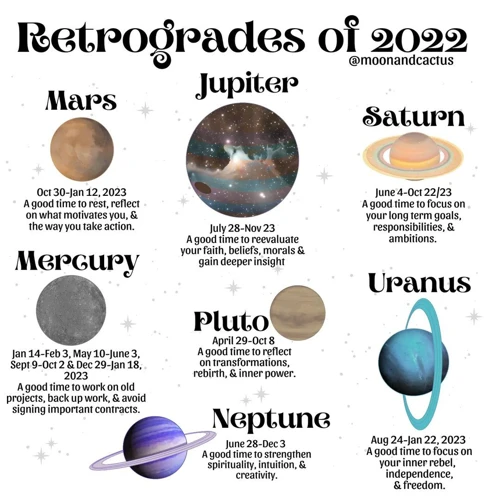
Within the realms of astrology, the retrograde planets bring a sense of intrigue and complexity to the cosmic dance. When a planet is in retrograde, it appears to move in an opposite direction from its usual path, creating a unique and powerful energy. This celestial phenomenon occurs when the Earth overtakes and passes by a slower-moving outer planet, causing the illusion of backward motion. Retrograde planets are deeply significant in a natal chart, as they highlight areas of our lives that require introspection, growth, and karmic resolution. While retrogrades are often feared or misunderstood, they offer us valuable opportunities for reflection, realignment, and personal transformation. Each retrograde planet carries its distinct influence and lessons, urging us to reassess and revise the areas of life it governs. From the introspective journey of Mercury retrograde to the deep soul exploration of Jupiter retrograde, these cosmic phenomena invite us to embark on a profound quest of self-discovery and spiritual evolution. Now, let’s journey further into the realms of astrological exploration by learning about the fascinating significance of the North Node and the transformative power it holds.
Definition
Definition:
The Ascendant, also known as the rising sign, is one of the vital components of a natal chart. It refers to the zodiac sign that was rising on the eastern horizon at the precise moment of an individual’s birth. This moment determines the Ascendant, making it unique to each person. The Ascendant is represented by a specific degree of one of the twelve zodiac signs.
The Ascendant acts as a mask or outer shell that individuals present to the world. It represents the first impression we make on others and the initial energy we project. This sign is what others perceive about us before getting to know us at a deeper level. It influences our physical appearance, demeanor, and how we navigate and interact with our surroundings.
To determine the Ascendant, an astrologer needs the exact time, date, and location of birth. This information allows for an accurate calculation of the rising sign.
The Ascendant is the starting point for understanding the individual’s natal chart, as it sets the stage for the rest of the astrological analysis and interpretations. It provides valuable insights into the person’s outlook on life, instinctual behavior, and the lens through which they view the world.
Understanding the Ascendant’s meaning allows us to gain a clearer understanding of ourselves and how we come across to others. It shines a light on our public persona, our instinctual responses, and the influences that shape our identity. Embracing the knowledge of the Ascendant enables personal growth and self-awareness, helping us align our external expression with our inner authenticity.
Importance
The Ascendant carries immense significance in a natal chart, shaping our outer persona and influencing our interactions with the world. Let’s explore why this element holds such weight in astrological interpretations:
1. First Impressions: The Ascendant represents the mask we wear and the image we project to others. It governs how we present ourselves in social situations and the impression we make on people we encounter. Understanding and embracing this aspect allows us to align our self-expression with our true inner self.
2. Physical Appearance: The Ascendant also plays a role in our physical attributes and appearance. It can affect our physique, body structure, and even facial features. Astrologers often consider the Ascendant when analyzing physical health patterns and preferences regarding self-care and personal style.
3. Life Path: The Ascendant provides insights into our life path and the experiences we are inclined to have. It influences our attitudes, motivations, and overall approach to life. By understanding the characteristics and qualities associated with the Ascendant, we can gain a deeper understanding of our purpose and potential direction in life.
4. Relationships: The Ascendant significantly impacts our relationships, both personal and professional. It determines the way we relate to others, our communication style, and the energy we attract. Understanding the dynamics of our Ascendant can help us navigate relationships more effectively and cultivate harmonious connections.
5. Integration with Sun and Moon: The Ascendant acts as a bridge between our Sun sign (representing our core identity) and Moon sign (representing our emotions and inner world). It provides a framework for blending these two essential aspects of our personality, helping us find balance and integration.
6. Self-Discovery and Growth: Exploring the Ascendant allows us to gain a deeper understanding of ourselves and our personal journey. It encourages self-reflection, self-awareness, and personal growth. By embracing and aligning with the qualities of our Ascendant, we can cultivate authenticity and live more fulfilling lives.
The importance of the Ascendant cannot be overstated, as it influences various aspects of our lives. Embracing its significance opens doors to self-discovery, improved relationships, and a deeper connection with our true essence.
Interpretation
When it comes to the interpretation of the Ascendant in a natal chart, astrologers carefully analyze its sign, house placement, and any aspects it forms with other planets. These elements provide invaluable insights into our outward projection, physical appearance, and the first impression we make on others. Each sign has its own distinct qualities, and when combined with the Ascendant, they shape the lens through which people perceive us. For example, an Aries Ascendant may emanate an aura of confidence, assertiveness, and competitiveness, while a Pisces Ascendant may exude empathy, sensitivity, and dreaminess. Additionally, the house placement of the Ascendant sheds light on the specific areas of life where we express our identity the most prominently. For instance, an Ascendant in the 10th house may indicate a strong focus on career and public image, while an Ascendant in the 7th house may emphasize relationships and partnerships. Aspects to the Ascendant from other planets can add layers of complexity to our personality. A harmonious aspect, such as a trine or sextile, may enhance the positive qualities of the Ascendant, while a challenging aspect, like a square or opposition, may present obstacles or internal conflicts in how we express our identity. The interpretation of the Ascendant in a natal chart unveils a wealth of information about our outer persona, physical presence, and the lens through which we interact with the world. Understanding its nuanced dynamics is a key step towards navigating our personal growth and harnessing our true potential.
Mercury Retrograde

Ah, the infamous phenomenon of , a cosmic twist that sends ripples through the fabric of communication and technology. When Mercury appears to go retrograde, it gives the illusion of moving backward in its orbit from our earthly vantage point. This celestial dance has garnered quite a reputation, as it is often associated with miscommunications, technological glitches, and unexpected delays. However, there is more to Mercury Retrograde than meets the eye. Defined as a period of reflection and introspection, Mercury Retrograde urges us to slow down, reevaluate our plans, and revisit unfinished matters. It serves as a cosmic reminder to pause, reassess, and realign our thoughts and ideas. While Mercury Retrograde can be perceived as a challenging time, it presents an opportunity for growth, self-reflection, and course correction. So, let’s embrace the mischievous dance of Mercury Retrograde and navigate its intricate energy with grace and mindfulness, knowing that beneath its perplexing guise lies a path to self-discovery and personal transformation.
Definition
In astrology, the term “Ascendant” refers to the zodiac sign that was rising on the horizon at the specific moment of an individual’s birth. It is also commonly known as the “Rising Sign.” The Ascendant is determined by the exact time and location of one’s birth, serving as the starting point for the construction of a natal chart. This sign signifies the first house of the astrological chart, representing our outward appearance, how we present ourselves to the world, and our initial reactions to the environment. It acts as a filter through which the energies of the other planets and celestial bodies express themselves in our lives. The Ascendant sets the tone for the entire chart and influences our personality, physical appearance, and overall self-expression. It embodies the qualities that we project and how others perceive us. The interpretation of the Ascendant is essential in understanding an individual’s core identity and the way they engage with the world. It is the lens through which we view life and interact with others, offering profound insights into our external mask and the energy we radiate. By unraveling the mysteries behind the Ascendant, we gain a deeper understanding of ourselves and our unique place in the cosmic tapestry.
Importance
The Ascendant holds immense significance in a natal chart, as it represents the lens through which the world perceives us. Its position at the eastern horizon determines the sign that was rising at the time of our birth, shaping our first impressions and influencing our outward demeanor. This astrological component plays a crucial role in defining our physical appearance and overall personality. With the Ascendant as the mask we present to the world, it becomes a key factor in how others perceive us, impacting our interactions and relationships. By understanding the significance of the Ascendant, we gain valuable insights into our approach to life and the energy we radiate in various situations. It helps astrologers uncover the essence of our self-expression, as it represents our core identity and how we present ourselves to others. The Ascendant also determines the ruling planet of our natal chart, which further influences our personality traits and behaviors. Exploring the importance of the Ascendant provides a deeper understanding of our true self, aiding in personal growth and self-awareness.
Interpretation
Unlocking the true essence of a natal chart lies in the art of interpretation. Once the Ascendant has been identified, it is essential to understand the implications and symbolism behind it. Interpreting the Ascendant entails examining its ruling planet, the aspects it forms, and the house placement. Each factor provides valuable insights into how the individual interacts with the world and projects themselves outwardly. The ruling planet of the Ascendant reveals the dominant energy and qualities that shape the individual’s personality. Its aspects in the natal chart shed light on the strengths, challenges, and potential areas of personal growth. Additionally, the house placement of the Ascendant lends insight into the areas of life where the individual is likely to shine or encounter obstacles. It signifies the focus and direction of their life journey. By analyzing all these elements together, astrologers can paint a comprehensive and intricate portrait of the individual’s personality, purpose, and overall life path. Furthermore, considering the interactions between the Ascendant and other significant components of the natal chart, such as the Sun, Moon, and planets, allows for a deeper understanding of how these elements harmonize or create tensions within the individual’s psyche. The interpretation of the Ascendant is a gateway to self-discovery and personal empowerment, offering profound insights into one’s true self and guiding them towards a more authentic and fulfilling life.
The Ascendant Ruler
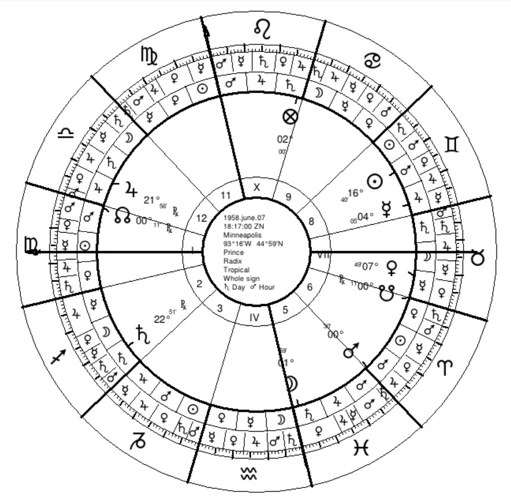
The Ascendant Ruler is a key player in unraveling the complexities of a natal chart. The Ascendant Ruler is the planet that governs the zodiac sign that sits on the ascendant. It holds significant influence over our physical appearance, personality traits, and the way we approach life. Understanding the Ascendant Ruler enhances our comprehension of the core essence that drives our being. For example, if Aries is on the ascendant, the Ascendant Ruler would be Mars. This would signify an assertive and dynamic approach to life. In the same way, the Ascendant Ruler sheds light on our strengths, weaknesses, and areas of focus. By examining the placement and aspects of the Ascendant Ruler, astrologers gain valuable insights into how we navigate the world. Whether it be a fiery Mars, a nurturing Moon, or a strategic Mercury, the Ascendant Ruler adds an additional layer of depth and complexity to our natal chart, offering profound revelations about our true selves.
Definition
The Ascendant, often referred to as the Rising Sign, holds a significant position within a natal chart. Defined as the zodiac sign that was on the eastern horizon at the precise moment of our birth, the Ascendant sets the stage for our entire astrological profile. It acts as a filter, shaping the lens through which we view the world and how others perceive us. The Ascendant represents our outer persona, the mask we present to the world. It encompasses our physical appearance, demeanor, and overall first impressions. This sign influences how we project ourselves and interact with others on a surface level. It acts as a protective shield, allowing us to navigate social situations and adapt to different environments. The Ascendant highlights the qualities and characteristics we embody when meeting new people or stepping into unfamiliar territory. By understanding the definition of the Ascendant, we gain valuable insight into the initial impression we make on others and the energy we emanate as we navigate the world.
Importance
- Self-Projection: The Ascendant is the mask we wear and how we project ourselves to the world. It influences our appearance, physicality, and first impressions. Understanding the Ascendant helps us become conscious of the image we present and how it may be perceived by others.
- First House: The Ascendant is linked to the First House, which represents our identity, self-image, and overall approach to life. It sets the foundation for all the other houses and reflects our primary motivations and goals.
- Individuality: The Ascendant plays a vital role in defining our personality and individuality. It shapes our temperament, behavior, and style of self-expression. Knowing our Ascendant can provide valuable insights into our strengths, weaknesses, and how we navigate the world.
- Characteristics: Each zodiac sign has distinct characteristics associated with the Ascendant. For example, Aries Ascendant individuals tend to be assertive and dynamic, while Pisces Ascendant individuals may be more dreamy and sensitive. Understanding these traits helps us understand ourselves and others on a deeper level.
- Compatibility: When comparing natal charts for compatibility, the Ascendant plays a significant role. Harmonious or complementary Ascendant signs often indicate a natural understanding and compatibility between individuals.
- Life Path: The Ascendant sets the stage for our life path and provides insights into the areas of focus and growth opportunities in our journey. It influences the themes and experiences we are likely to encounter throughout our lives.
- Overall Chart Interpretation: The Ascendant serves as an anchor point for interpreting the entire natal chart. It provides a context for understanding the placement and significance of the planets, houses, and aspects within the chart.
The importance of interpreting the Ascendant cannot be emphasized enough. It is a fundamental building block in understanding our overall astrological profile and unlocking a deeper awareness of our unique self. By unraveling the symbolism and meaning behind the Ascendant, we gain valuable insights into our self-projection, individuality, life path, and compatibility with others. So, let’s explore further and uncover the intriguing elements of our natal charts.
Interpretation
The interpretation of the Ascendant in a natal chart is a fascinating journey into the core of our being. It reveals the energy, characteristics, and qualities that we project on the world and how we navigate our external environment. When interpreting the Ascendant, astrologers consider the sign on the Ascendant, its ruling planet, any aspects to the Ascendant, and the planets that reside in the first house.
The Sign on the Ascendant: Each zodiac sign brings distinct traits and qualities to the Ascendant, shaping our outward appearance and the first impression we make. For example, an Aries Ascendant may display confidence and assertiveness, while a Cancer Ascendant may exude nurturing and sensitivity.
Ruling Planet: The ruling planet of the Ascendant provides further insight into our disposition and personality. The sign and house placement of the ruling planet reveal where our strengths lie and the areas of life where we are most likely to shine.
Aspects to the Ascendant: The aspects made by other planets to the Ascendant bring additional layers of meaning to its interpretation. Harmonious aspects, such as a trine or sextile, can enhance the positive qualities of the Ascendant, while challenging aspects like squares or oppositions may indicate areas of inner conflict or challenges in expressing oneself authentically.
Planets in the First House: Planets residing in the first house, the house of the self, greatly influence the interpretation of the Ascendant. These planets add their energy, qualities, and themes to how we present ourselves and engage with the world. For example, a person with Venus in the first house may have a charming and attractive demeanor, while someone with Mars in the first house may display a strong and assertive personality.
Interpreting the Ascendant requires a delicate balance of understanding the individual components and piecing them together to create a cohesive picture of the person. A skilled astrologer considers the interactions between the Ascendant and other elements of the natal chart to gain a holistic understanding of an individual’s persona. It’s crucial to remember that while the Ascendant represents our outward manifestation, deep self-awareness and introspection are necessary to embrace our true inner selves.
Conclusion
Embarking on the exploration of the different elements of a natal chart has allowed us to unravel the intricate tapestry of astrology. Each component we’ve discovered, from the Ascendant to the retrograde planets, offers a unique layer of insight into our individual identities and life experiences. As we interpret these elements, we not only gain a deeper understanding of ourselves but also develop a greater appreciation for the connections between the celestial bodies and our human existence.
The Ascendant serves as our initial introduction to the world, influencing our first impressions and shaping our outer persona. With the Sun Sign, we uncover the core essence of our being and discover our fundamental personality traits. The Moon Sign reveals our emotional landscape, shedding light on our instinctive reactions and inner world. Meanwhile, the planets and their placements disclose a wealth of information about our desires, motivations, and potentials. Additionally, the houses offer a personalized map of our life sectors, while the aspects highlight the complex interplay between celestial energies.
Exploring the elements of the natal chart is like peering into a cosmic mirror, discovering the intricacies of our human experience reflected in the heavens. By embracing and understanding these elements, we empower ourselves to make conscious choices, navigate life’s challenges, and embrace our truest selves.
Whether we seek guidance, self-discovery, or a deeper connection to the universe, the natal chart provides a roadmap to self-awareness and personal growth. It reminds us that we are not merely passive participants in the grand symphony of life but active co-creators of our destiny. The elements of the natal chart amplify our understanding of ourselves and offer profound insights into the intricate dance between the celestial and the earthly realms.
In conclusion, the study of astrology and the exploration of the different elements of a natal chart invite us to embark on a journey of self-discovery, providing a guiding light amidst the mysteries of life. By delving into these elements, we unlock a deeper understanding of ourselves and our unique place in the cosmos, granting us the power to navigate our lives with purpose, authenticity, and a profound connection to the universe.
Frequently Asked Questions
What Is a Natal Chart?
A natal chart, also known as a birth chart, is a personalized cosmic map that represents the positions of the sun, moon, planets, and other celestial bodies at the exact time of an individual’s birth. It serves as a blueprint of one’s unique personality and life experiences.
How Can I Get My Natal Chart?
To obtain your natal chart, you can use various online platforms or consult with an astrologer who can create a personalized chart for you. Simply provide your birth date, time, and location, and the chart will be calculated based on these details.
What Is the Ascendant?
The Ascendant, also known as the rising sign, is the zodiac sign that was on the eastern horizon at the time of your birth. It represents the mask you present to the world, influences your physical appearance, and plays a significant role in shaping your overall personality.
What Is the Significance of the Sun Sign?
The Sun Sign in your natal chart represents your core essence, vitality, and ego. It showcases your basic personality traits and the qualities you strive to embody. It is often considered the most important sign in astrology.
What Does the Moon Sign Represent?
The Moon Sign in your natal chart represents your emotional nature, instincts, and subconscious mind. It influences your emotional responses, needs, and how you nurture yourself and others. It reveals your true inner self.
What Do the Planets Represent in a Natal Chart?
Each planet in your natal chart represents a different aspect of your personality and life experiences. For example, Mercury represents communication and intellect, Venus represents love and pleasure, and Mars represents passion and drive.
What Are the Houses in Astrology?
The houses in astrology divide the natal chart into different areas of life, each representing specific areas such as relationships, career, home, and spirituality. The interactions between the planets and houses provide insights into various aspects of your life.
What Are Aspects in a Natal Chart?
Aspects in astrology refer to the angles formed between planets in your natal chart. They represent the relationships, connections, and interactions between these celestial bodies. The aspects provide valuable information about how different energies combine and influence your life.
What Do the Elements Symbolize in Astrology?
The elements (fire, earth, air, and water) in astrology represent different qualities and energies. Fire signs are passionate and action-oriented, earth signs are grounded and practical, air signs are intellectual and communicative, and water signs are emotional and intuitive.
Can Planets Go Retrograde in a Natal Chart?
Yes, planets can go retrograde in a natal chart. Retrograde motion occurs when a planet appears to move backward from our perspective on Earth. Retrograde planets have distinct energies and influences in a person’s chart, indicating areas of introspection, revision, and karmic lessons.

